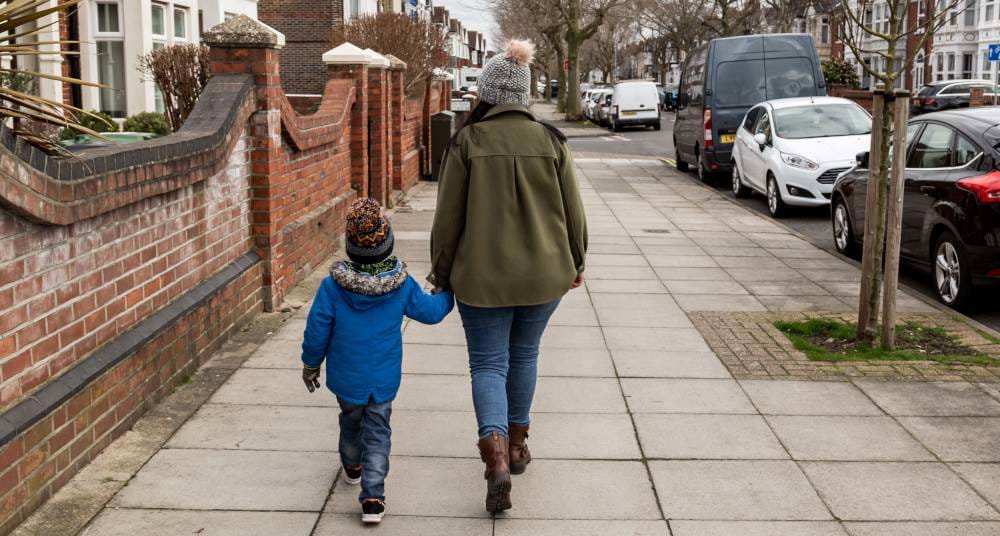What is a Court Order?
A court order is a formal decision made by a judge. These orders come in two main types: interim and final orders.
- An Interim Orders: These are temporary orders issued to address urgent matters until a final decision is reached. Interim orders can cover a range of issues, offering immediate guidance during ongoing legal processes.
- Final Orders: These are the judge's last word on a case, issued at the end of legal proceedings. They provide a clear, final decision on the matter at hand. Final orders are tailored to the specific case to ensure justice is served.
Court orders can apply to different areas of law, such as family, criminal, contracts, property, and employment, among others They have llegally binding and can lead to penalties if you do not comply with them.
Three Main Types of Court Order Concerning Children
There are three main types of Court Orders concerning children. These are Child Arrangement Order, Prohibited Steps Order and Specific Issue Order. There are others, but these are the most common ones we see.
1. Child Arrangement Order
A Child Arrangements Order regulates who a child should live with and otherwise spend time with. If an order is granted this can continue until the child is 16 years old or in exception circumstances until they turn 18 years old.
In some circumstances the court can direct that the child should live with multiple people under a shared care arrangement.
This includes whether the child should have supervised or unsupervised contact with a non-resident parent or alternatively whether they should have direct (face to face) or indirect contact (via telephone, video calls or letters etc).
The Court Order will normally contain a lot of detail. This is to minimise the chance of any potential future conflicts between the parties which could result in the matter being returned to Court. As a result, it’s worth considering specific details early on, such as who will collect and return the child from contact and where the child shall be returned after contact.
2. Prohibited Steps Order
If a Prohibited Steps Order is issued by the Court, this prevents the other person from doing something in relation to the child. There are many possible reasons to file a Prohibited Steps Order application but some of the most common are:
- To prevent the other person from going abroad or moving away from the area with the children
- Stopping medical treatment of a child
- Preventing the change of surname of a child.
A Prohibited Steps Order is therefore filed when one person does not give express permission for the other person to do something in relation to the child, but fears that it may be done anyway.
If a Prohibited Steps Order is granted, a Court Order will normally provide directions in relation to carrying out the Court Order, imposing specific conditions on the person who had the Order granted in their favour and confirming the time periods of the Court directions. Often evidence will be required by the Court. This could be evidence of return tickets from a holiday abroad to show that there is an intention to return to the UK.
3. Specific Issue Order
A Specific Issue Order is made about a specific issue that cannot be agreed. If a Specific Issue Order is issued by the Court, this will give the person making the application permission to do something without the other person’s consent. Common examples include:
- Going abroad either for a holiday or to permanently relocate
- Changing a child’s surname
- Decisions relating to schooling
- Decisions about the medical treatment of a child
A Specific Issue Order is similar to a Prohibitive Steps Order, but the main difference between them are that a Specific Issue Order application is seeking permission to do something but a Prohibited Steps Order application attempts to stop the other person doing the thing in question.
A Specific Issue Order can be made when people with Parental Responsibility are not in agreement or if the issue has not yet been raised but you believe going to Court immediately is the best option. Specific Issue Orders will normally contain the same details as mentioned above for a Prohibited Steps Order.

Other Court Orders Concerning Children
The Court can also make a Special Guardianship Order. This will grant the person in possession of this Order Parental Responsibility for the child.
A Special Guardianship Order (SGO) is a legal decision made by the court. It grants someone the same responsibilities as a parent for a child. This arrangement usually continues until the child turns 18.
The court doesn't take this decision lightly. They do it when it's in the child's best interest to have a stable and long-lasting home. It's a way to provide the child with security and care while respecting their connection to their birth family.
In some cases, the person with an SGO may also receive financial help or support services to ensure the child's needs are met.
In simple terms, an SGO is a way to give a child a stable home with someone who has the same responsibilities as a parent. It's a long-term arrangement that's meant to protect the child's well-being.
Financial Provisions
Financial provisions can also be ordered by the Court. As a general rule, if parents can’t agree child maintenance it will be calculated by the Child Maintenance Service. However, there are certain circumstance when the Court can make an Order. An example is who will pay for the child’s school fees.
The Orders listed above is not an exhaustive list of all of the types of Orders that the Court can make. Other Orders can be made in other circumstances but are less common. For example, the Court can make an Order granting Parental Responsibility of a child if this is a more appropriate order.
All the Different Types of Court Orders Concerning Children You May Come Across
Family law in the UK encompasses various types of court orders aimed at safeguarding the well-being and rights of children. These orders are issued by the family courts to address different aspects of children's lives and family dynamics. Here are some of the key types of court orders for children in family law:
- Child Arrangements Order: This order determines where a child will live and the time they will spend with each parent or other individuals involved in their care. It can specify arrangements for residence and contact.
- Prohibited Steps Order: This order prevents a parent from taking certain actions without the court's permission, such as changing the child's school or taking them out of the country.
- Specific Issue Order: A Specific Issue Order addresses a particular issue or decision related to the child's upbringing, such as their religious upbringing, medical treatment, or choice of school.
- Parental Responsibility Order: This order grants parental responsibility to an individual who does not already have it. Parental responsibility includes the rights and responsibilities for a child's care and upbringing.
- Care Order: A Care Order is issued when the court believes a child is at risk of significant harm. It places the child under the care of the local authority and may lead to the child being taken into care.
- Supervision Order: A Supervision Order requires a local authority to supervise and support a child's care while they remain with their parents or in the care of other family members.
- Emergency Protection Order: This order is used in situations of immediate danger to a child's well-being. It allows the child to be removed from their current living situation and placed in emergency foster care.
- Adoption Order: This order legally transfers all parental responsibility from the child's birth parents to the adoptive parents, making the child a permanent member of their new family.
- Special Guardianship Order: This order appoints a special guardian to care for the child. It provides them with a significant role in the child's upbringing, similar to that of a parent, while preserving the child's connection to their birth family.

Before Going to Court
It’s important that you get specialist legal advice from Child Law Solicitors before making any Court application. You need to be sure that you are making the most suitable application and that you are providing all of the relevant information.
It’s vital that the application is correct so that it is dealt with as quickly and effectively as possible. The Court will return any application if any crucial information is missing, or if the incorrect form is filed.
It’s worth noting that Court Orders relating to children may also be granted in Public Law proceedings. These are proceedings involve the Local Authority who are requesting the Court to make an Order in respect of the relevant child.
For expert legal help with making a Court Order relating to your child, or if you want to defend one, contact one of our as soon as possible.









